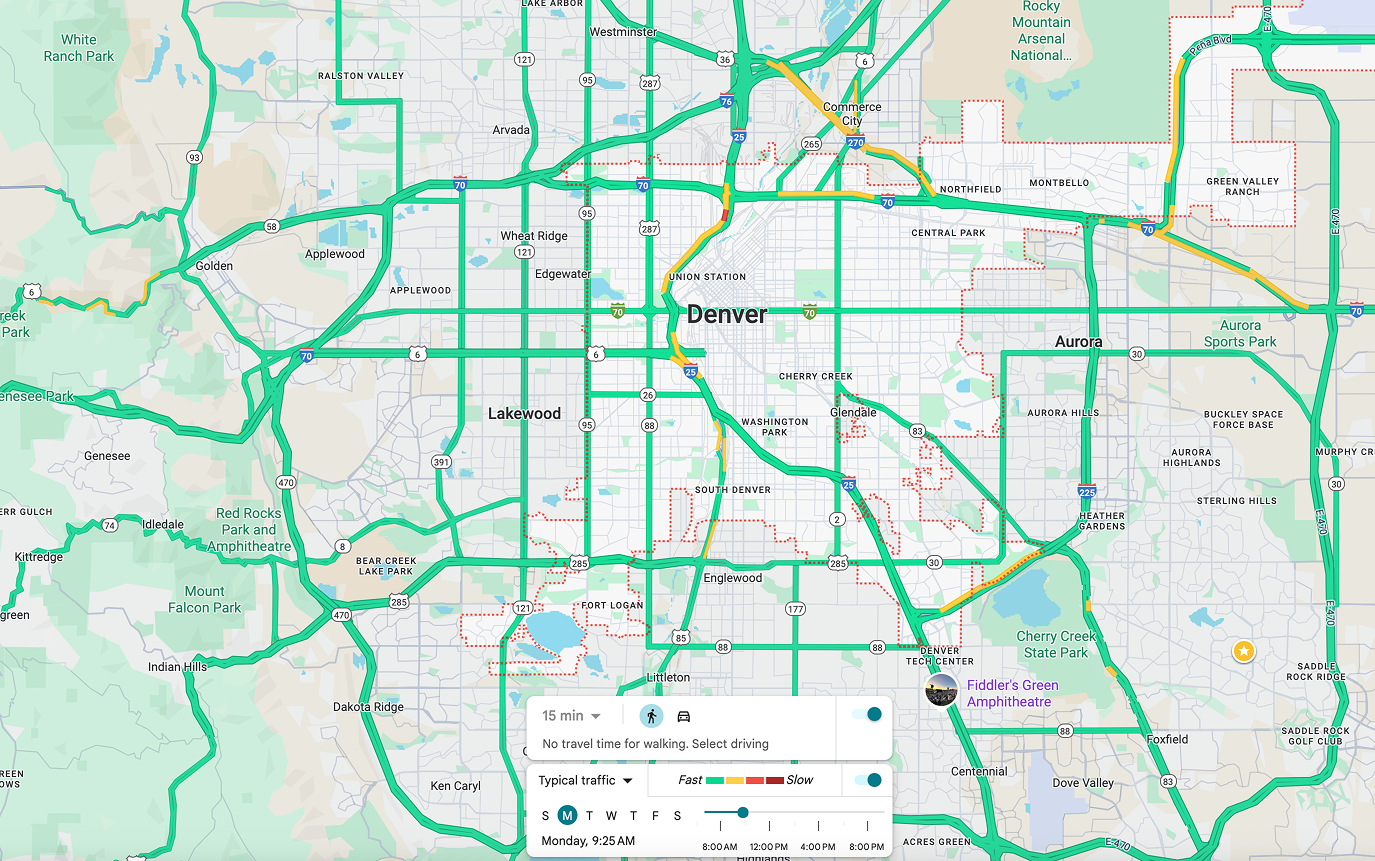TL;DR
This video addresses the most common questions people have when considering a move to Denver, Colorado. We provide honest, local perspectives on the true cost of living, how to acclimate to the altitude, navigating traffic, the impact of legal cannabis, and whether Denver is a good place to raise a family, helping you decide if moving to Denver is right for you.
---
Every day, we receive countless messages asking the same core questions about moving to Denver, and after helping hundreds of families relocate to the Mile High City, we've gained a deep understanding of what truly matters to newcomers. We've found that while the state's cost of living is about 30% higher than the national average, primarily due to housing, the unique lifestyle and opportunities here often make it a worthwhile investment for those relocating to Denver Colorado.
With Will being a Colorado native and Eli having lived here for 25 years, our combined five decades of local experience and insights from countless clients give us an unfiltered perspective on what it's really like to live here. We've seen the market evolve, helped families navigate the altitude, and guided individuals through finding their perfect community. Our expertise extends beyond real estate; it's about understanding the Denver way of life.
In this comprehensive guide, we'll tackle the most frequently asked questions about moving to Denver area, from affordability and weather patterns to traffic realities and family-friendly aspects. We'll give you the local's perspective on these critical topics, helping you make an informed decision about your potential move.
Is Denver Actually Affordable? Understanding the Cost of Living
The question of whether Denver is affordable isn't a simple yes or no; it's all about perspective. If you're coming from a high-cost area like California, Chicago, or New York, you might find Denver surprisingly affordable, often getting more bang for your buck in housing and saving on property taxes. However, if you're relocating from the Midwest or Texas, you'll likely find housing costs higher here, though Texas residents will often find significant savings on property taxes.
From a state-wide perspective, Colorado's total cost of living is about 30% higher than the national average. We've observed that this spike is almost entirely driven by housing costs. Day-to-day expenses like utilities, cell phone service, and internet are generally on par with national averages. We often tell clients that while housing is a significant investment, the state offers immense value. "I feel like the state gives back to you equally," we often say, referring to the unparalleled outdoor lifestyle, the proximity to mountains, and the convenience of Denver International Airport (DIA) for travel.
However, it's crucial to factor in the lifestyle cost. While many outdoor activities are free (like hiking), getting into skiing or mountain biking requires investment in gear and passes, which can add up. But don't let that deter you; there are countless free ways to enjoy Colorado's natural beauty all year long. For those interested in the broader economic picture and future developments that could impact affordability, we recommend checking out The Future of Denver | The River Mile, New Retail, and What’s Really Happening in the Marke, which details some of the major projects shaping Denver's economic landscape.

Dealing with Denver Altitude Effects and the Unique Weather Patterns
The altitude in Denver is a very real factor for anyone relocating to Denver Colorado. Sitting at 5,280 feet above sea level – the Mile High City – your body will likely feel the effects, especially during the first couple of weeks. Common symptoms include headaches, lightheadedness, and shortness of breath. We still get a little winded walking up two flights of stairs in a house!
To acclimate successfully, we always advise clients to prioritize two things: good sleep and plenty of water. Hydration is essential here, far more than in humid states. Part of the Colorado culture is carrying a water bottle everywhere – it's an absolute must. They say full acclimation takes about 90 days, but even short visits or intense activities like skiing require extra caution.
As for the weather, it's one of the main reasons people are drawn to Colorado. We truly experience four distinct seasons, and you'll feel every single one. What sets Denver apart is our sunshine, which is present all year long. Even in the depths of winter (December through March, with January, February, and March being the coldest), the sun makes a significant difference. While days are short in winter, getting dark by 4:30 or 5 PM, that sunshine makes 30-degree days feel much warmer.
Our key to surviving Denver weather? Layers! You'll constantly be taking jackets on and off throughout the day. Springtime is typically rainy and brings a fair amount of hail, so be prepared for that. Summers get genuinely hot, with about 6 to 8 weeks consistently in the high 90s to low hundreds, but it's a dry heat, making it much more tolerable than humid climates. Fall is breathtakingly beautiful but unfortunately short. Our winters are real, but just when you're getting tired of the cold, spring is right around the corner. This balance means you can utilize the outdoors all year long, making it a great middle ground for those who appreciate snow but not dreary, dark winters.
How Bad is Denver Traffic, Really? Daily Commute vs. Mountain Traffic
When discussing traffic in Denver, we break it down into two distinct categories: daily commute traffic and I-70 mountain traffic. These are entirely different beasts.
Daily Commute Traffic: For a city of Denver's size, we find our daily commute traffic to be very tolerable. While long-time locals might complain, those who've lived in truly congested cities (like LA or Chicago) often find Denver's traffic a breeze. The reason for this, in our opinion, is how spread out the metro area is. Denver sits centrally, with suburban areas radiating out in roughly a 45-minute radius. This dilutes traffic across multiple highways (I-25 and I-70 being primary arteries) rather than concentrating it all into one bottleneck.
Yes, I-70 (east-west) and I-25 (north-south) will get congested during rush hour, but rarely are you stuck in complete gridlock unless there's an accident. For the most part, traffic tends to keep moving steadily. We even looked it up: I-70 traffic during rush hour still averages 36 mph, which is quite respectable for a major city. If you're coming from a smaller town with no traffic, you'll notice the congestion, but on a day-to-day basis, it's very manageable. For insights into how Denver's infrastructure is evolving, you might find Denver Is Transforming: 4 Mega Projects You NEED To See interesting, as these projects could impact future commutes.
I-70 Mountain Traffic: This is where traffic gets really bad. During ski season, if you're heading to the mountains on a Friday afternoon or returning on a Sunday afternoon, prepare for significant delays. We're talking hours of sitting in traffic, taking two to three times longer than normal to reach your destination. Sometimes you'll barely move 10 feet in 45 minutes. This traffic is undeniable and unavoidable if you hit it at peak times.
Our advice? Game the system. Try to head to the mountains on a Thursday if possible, and return on a Saturday or a Monday. Avoid Sunday afternoons at all costs – that's when everyone is tired after a weekend of activities, and sitting in traffic for hours after skiing all day is the last thing you want. Planning your travel strategically can save you a lot of frustration.

Do You Need a 4x4 Vehicle for Relocating to Denver Colorado?
The short answer is no, you don't immediately need a 4x4, four-wheel drive, or all-wheel drive vehicle when you first move to Denver. However, we strongly recommend planning to upgrade to one as soon as you can. While our snow tends to melt quickly, often within a day or two of a storm, there will be times when roads are snowy or icy.
Driving a two-wheel drive vehicle in these conditions is not ideal and can be quite challenging. You don't want to be stuck at home or, worse, get into a slippery situation. The peace of mind that comes with knowing you can safely navigate snowy or icy roads is invaluable. It means you won't be confined to your home during a winter storm and can confidently head out if needed. So, while it's not a day-one essential, make it a priority for your long-term comfort and safety in Denver.
The Actual Impact of Legal Cannabis on Daily Life in Denver
This is a question we used to get far more often, especially before cannabis became recreationally legal in many other states. Now that it's more widespread, the surprise factor has diminished, but for those coming from states where it's not legal, like Florida or Texas, it's still a common concern. So, what's the situation like in Colorado?
In essence, cannabis is treated very much like alcohol. There are strict regulations in place: you cannot use it in public, just as you can't openly consume alcohol in public. It's also illegal to use it while driving. For the most part, people respect these rules.
If you're downtown, you might catch a whiff of it here and there, and it's definitely noticeable at concerts or large public events. However, in the suburbs where most families reside, we rarely encounter it or smell it. It's not something that constantly impacts your day-to-day life. Dispensaries themselves are highly regulated, often feeling more like high-end, professional retail stores than anything illicit. "To experience it, you really got to go looking for it," we always say. If you're not actively seeking it out, it's unlikely to be a significant presence in your life.
Is Denver a Good Place to Raise a Family? Schools & Neighborhoods
For families considering relocating to Denver Colorado, school districts are often a top priority, and we're happy to say that the Denver metro area excels in this regard. With the exception of certain parts of Denver County itself, almost the entire metro area boasts very high school ratings. Districts like Douglas County, Cherry Creek School District, Littleton, Boulder, and Jefferson County consistently rank among the top five best school districts in all of Colorado. This alone provides a strong foundation for family life.
Beyond academics, Denver offers an incredible array of outdoor activities, robust school sports programs, and numerous master-planned communities. These communities are fantastic for adults looking to make friends in a new city, as they often feature pools, clubhouses, and organized events that encourage neighborly interaction. We frequently see clients forming strong bonds, gathering for Fourth of July barbecues, Labor Day parties, and everyday social events.
Colorado embodies a "work hard, play hard" ethos. People here dedicate themselves to their jobs Monday through Thursday, but come Friday through Sunday, they're out enjoying the Denver Zoo, golfing, hiking, or simply socializing with friends and neighbors. This vibrant social scene happens year-round because our seasons are so enjoyable. We've heard from clients who moved from Texas lamenting that they couldn't go outside for half the year due to heat, or from Minnesota and Michigan where winter kept them indoors. Here, you'll be utilizing the outdoors in every season. This makes Denver a very family-friendly place with endless opportunities for engagement and growth. For a deeper dive into the developments shaping family-friendly areas, check out Inside the Future of Denver | From Parker to Cherry Creek’s $1B Makeover.

Is Moving to Denver Worth It for YOU?
So, after all these considerations, is moving to Denver worth it? In our humble opinion, it's a definite yes. Of course, there are always trade-offs depending on where you're coming from. If you're relocating from California, you might be giving up the ocean, but you're gaining four distinct seasons, majestic mountains, and often, greater housing affordability.
All things considered, the pros of living in Colorado far outweigh the cons. This isn't just our opinion; it's the consistent feedback we receive from the hundreds of people we've helped move here. We love checking in with our clients a few months after their move, and the rave reviews are constant: they praise the schools, the welcoming neighbors, the endless activities, and all the fun "Colorado stuff" they're doing.
It's actually quite amusing to see our clients' social media posts in their first 90 days. They often do more quintessential Colorado activities in that short time than we've done in our combined 50+ years here! And that's exactly how it should be. Nothing makes us happier than seeing individuals and families embrace everything the state has to offer. If you're looking for a vibrant, active lifestyle with stunning natural beauty and a strong sense of community, Denver truly delivers.
Key Takeaways
- Denver's Cost of Living: About 30% higher than the national average, primarily driven by housing. However, property taxes can be lower than states like Texas, and the overall value is perceived as high for the lifestyle offered, with day-to-day expenses largely matching national averages.
- Altitude Acclimation: Denver sits at 5,280 feet above sea level. Newcomers should prioritize hydration and rest for the first few weeks, with full acclimation typically taking 90 days to mitigate headaches and lightheadedness.
- Dynamic Weather: Colorado experiences four distinct seasons with abundant sunshine year-round. Summers are hot but dry, winters are cold but sunny (dark by 4:30-5 PM), and spring brings rain and hail, necessitating layered clothing for comfort.
- Traffic Realities: Daily commute traffic is generally tolerable and flowing due to the metro's spread-out nature (averaging 36 mph on I-70 during rush hour). However, I-70 mountain traffic on weekends (especially ski season Fridays and Sunday afternoons) can be severe, adding hours to trips.
- Family-Friendly Environment: Denver boasts highly-rated school districts like Cherry Creek and Douglas County, coupled with abundant outdoor activities, school sports, and master-planned communities that foster strong social connections and year-round outdoor engagement.
Frequently Asked Questions (FAQ)
Q: Is Denver affordable for new residents?
A: Affordability in Denver is relative. If you're moving from a higher-cost state like California or New York, you'll likely find housing more affordable and save on property taxes. However, if you're from the Midwest or Texas, expect housing costs to be higher, though Texas residents will see lower property taxes. Overall, the state's cost of living is about 30% higher than the national average, primarily due to housing.
Q: What are the effects of Denver's altitude?
A: Denver's 5,280-foot altitude can cause headaches, lightheadedness, and shortness of breath, especially in the first few weeks. We advise getting plenty of sleep and drinking significantly more water than you're used to. Full acclimation typically takes about 90 days, but even after that, staying hydrated is crucial for daily life and outdoor activities.
Q: How is the weather in Denver throughout the year?
A: Denver experiences four true seasons with abundant sunshine year-round. Winters (Dec-March) are cold but sunny, with short days. Spring brings rain and hail. Summers (6-8 weeks) are hot in the high 90s to low 100s but with dry heat, making them tolerable. Fall is short but beautiful. The key to enjoying it all is dressing in layers.
Q: What is the daily commute traffic like in Denver?
A: Daily commute traffic in Denver is generally tolerable for a major city. The metro area's spread-out nature dilutes congestion across multiple highways. While I-25 and I-70 get busy during rush hour, traffic typically keeps moving, averaging around 36 mph on I-70. Serious gridlock is usually only seen during accidents.
Q: How do Denver housing costs compare to other states?
A: Denver's housing costs are a primary driver of Colorado's overall cost of living, which is about 30% higher than the national average. Compared to states like California or New York, you'll often get more house for your money and pay lower property taxes. However, housing is generally more expensive than in states like Texas (though with lower property taxes) or the Midwest.
---
Watch the Full Video
For more insights, watch the complete video: Top Questions Everyone Has About Denver Answered! (Watch This If You're Thinking Of Moving)
---
Making Your Move Easier
Moving forward does not have to be overwhelming. With the right guidance and support, you can navigate this journey smoothly. Eli Schmidt and Will Grimes are ready to help you every step of the way.
Here's how to get in touch:
📧 Email: [email protected]
📞 Phone: 720-419-0224
💻 YouTube: Living in Denver - The Mile High Property Brothers


